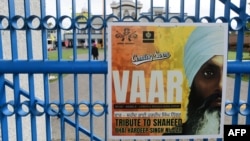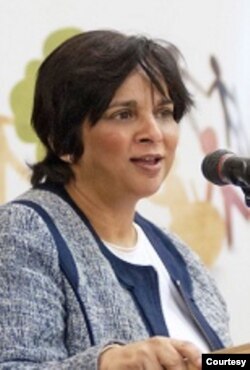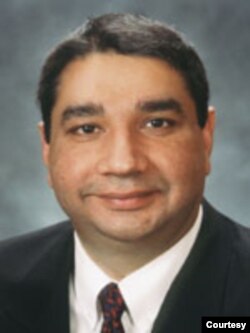Allegations by Canadian Prime Minister Justin Trudeau that India is behind the June killing of a Sikh community leader in Vancouver have placed the nation’s large Indian Canadian community at the center of an escalating diplomatic row.
According to the most recent government statistics, 1.8 million people in Canada, or 5.1% of the population, consider themselves to be of South Asian origin. Just over 770,000 identify themselves as followers of the Sikh religious faith, accounting for more than 2% of the national population. “South Asian” is generally defined as referring to the Indian sub-continent, including present day Pakistan.
Immigration to Canada from the then British-controlled Indian sub-continent started in the late 1800s and has included large numbers of Sikhs. There are estimated to be more than 220,000 followers of the Sikh faith in Greater Vancouver, making up about 8.5% of the metropolitan area’s population.
Reeta Tremblay, who was born in the state of Jammu and Kashmir, is a professor emeritus of political science at the University of Victoria. She says the South Asian community, including Sikh followers, play a huge part in Canada.
"You have lot of entrepreneurial community, even if you look in our Vancouver, you know, in our Vancouver Island, we have very prominent, prominent Sikh community," she said. "We have lots of prominent non-Sikh Hindus who are in business, in academic sector, professional sectors. So, there's a huge, you know, there is an influential community."
This includes Jagmeet Singh, leader of Canada’s New Democratic Party, who is a turban-wearing Sikh.
Attention has been placed on the diaspora since Prime Minister Justin Trudeau accused India of being behind the June killing in suburban Vancouver of Hardeep Singh Nijjar, a prominent Sikh community leader. The Indian government has reacted with warnings about travel to Canada and by halting the issuing of travel visas to Canadians.
Nijjar was a prominent supporter of Khalistan, a proposed separatist sovereign enclave for Sikhs in the current state of Punjab, India.
Dave Hayer, who has lived in suburban Vancouver since immigrating in 1972, has experienced much of the local Sikh community’s recent history.
His father, Tara Singh Hayer, was publisher of the Indo-Canadian Times and was often critical of violence within the local effort to create Khalistan. He was paralyzed by an assassination attempt in 1988 and killed 10 years later.
A former elected member of the provincial legislature, he feels that Trudeau should have provided more evidence before accusing India, but he also says New Delhi is going too far.
"I think the prime minister overdid by what he said, because he should have shown what proof he has, but the senior officials from the RCMP or other law enforcement agencies show what proof they had to say what he was saying," he said. "I think India is also probably overreacting to the case."
University of Victoria’s Tremblay recalled that when Trudeau was first elected, he talked about having more Sikh followers in his Cabinet than Indian Prime Minister Narendra Modi had in his. The comment that did not go over well with the Indian leader.






